- Portrait of Kimberlee Randle-King, who was found strangled by her own t-shirt on September 19, 2014, in a jail cell in Pagedale, MO, where she was being held for outstanding warrants due to a dispute with another woman. Randle-King had two children and no history of depression, according to her family.
- Fifteen hours before Ralkina Jones was found dead in the bed of her jail cell in Cleveland Heights, Ohio, she said, “I don’t want to die in your cell.” Video footage shows her speaking of her medical problems during her booking for her arrest for assaulting her abusive ex-husband. Police were reportedly attentive to her medical needs, although it is not clear they provided her with the medications she needed. On the morning of July 26, 2015, she was found unresponsive. Jones was 37 and a mother of one.
- On July 13, 2015, Sandra Bland was found dead in her jail cell in Waller County, Texas. Her death was ruled a suicide, by hanging, but her family disputes any claims that she was suicidal. Bland was pulled over for failing to signal a lane change. A dashboard video recording of her interaction with the police officer shows their conversation became heated, with the officer demanding she get out of the car, and pointing his taser at her, saying, “I will light you up.” When Bland called a family member from the jail, she asked, “How did switching lanes with no signal turn into all of this?”
- 22-year-old Rekia Boyd was shot to death on March 21, 2012 in an alley in Chicago by an off-duty Chicago police detective with an unregistered firearm. The detective was charged with involuntary manslaughter and acquitted on the grounds that the killing was deliberate. He thought Boyd held a gun in her hand; it was a cell phone.
- Kindra Chapman, 18, was found dead in her jail cell in Homewood, Alabama, on July 14, 2015, an apparent suicide. Chapman had been arrested a few hours before for stealing a cell phone. Video surveillance shows that “she appeared to be agitated, and she attempted to damage the contents of the cell. She knocked over a water cooler, took a bed sheet, and stood on the cooler to tie the bed sheet to a wall support rail extending from the ceiling. She then used the sheet to commit suicide.”
- On July 22, 2015, Joyce Curnell, 50, was found unresponsive in her cell at Sheriff Cannon Detention Center, in Charleston, SC. She had been booked at the detention center the day before for an outstanding bench warrant for shoplifting. Prior to being sent to jail, Curnell had briefly been taken to a hospital for a ‘medical issue.’
- Portrait of Sarah Lee Circle Bear, a Native American woman who was found dead in her holding cell on July 6, 2015 at Brown County Jail in Aberdeen, SD. As Sarah Sunshine Manning writes, “Witnesses stated that before being transferred to a holding cell, Circle Bear pleaded to jailers that she was in excruciating pain. Jail staff allegedly responded by dismissing her cries for help, telling her to “knock it off,” and “quit faking.” Witnesses say that inmates cried out for the jail staff to help Circle Bear, to which they eventually responded by picking her up off of the floor, dragging her out of the cell, and transferring her to a holding cell. Circle Bear was later found unresponsive in the holding cell.
- Portrait of Sheneque Proctor, a 18-year-old woman from Bessemer, Alabama, who was found dead in her jail cell on November 2, 2014. She was arrested for disorderly conduct and resisting arrest. Though toxicology reports show the possibility of drug overdose, she had a history of asthma and was ignored in her cell for many hours despite labored breathing.
- Raynetta Turner, 43, was found dead in her jail cell two days after she was arrested for shoplifting from a wholesale food store in Mount Vernon, NY. After informing the police of hypertension and issues following bariatric surgery, she was taken to a hospital and then released back to the police the next day. The following day, on July 27, 2015, she was found to be unresponsive in her cell. Turner had eight children; her husband Herman Turner told reporters, “All I know is my wife is dead, and no one is saying anything. She was a mother, she was a wife. She was mine. No longer is she mine.”
- On August 25, 2015, Dominique Gail Worrell, 26, was found dead in her cell of an apparent suicide by hanging. Worrell had been convicted of assault with a deadly weapon, inflicting serious injury, in a stabbing incident, in Raleigh N.C. Worrell was a former model and mother of two young daughters. Her family had no indication that she felt suicidal. I happened upon her Sound Cloud page.
I’ve been pulled over for traffic violations just a few times in my life. Only once was I taken into a station.
It was a Sunday morning in Hyde Park, on the south side of Chicago. Instead of sleeping in or nursing a hangover, I was on my way to church so I could do research for my Durkheim paper on collective effervescence. I went to pick up a friend and pulled up to his house by making a U-turn in a four-way intersection. There was no one around but a cop car that I didn’t notice.
On inspecting my documents, the cop discovered that my license had expired. He seemed embarrassed. Now he actually had to report me instead of giving me a ticket. He didn’t make me get into his car to go to the station. Instead, my friend was asked to drive me there, following behind him. In the station, he asked me questions and filled in a form. We sat in a room lined with benches. Handcuff rings stuck out of the walls just above the benches. I was dressed in a navy blue suit, for church. Out of the corner of my eyes, I watched a slow Sunday-morning parade of African Americans being brought in, in handcuffs. “Is that how you’re getting your dates these days?” shouted one cop to another, who was bringing in a couple of streetwalkers.
On that occasion, and most others, I was treated with politeness and respect. Usually, when I’m pulled over, the police officer almost acts as if he’s made a mistake. I usually get a warning, not even a ticket. There are some parts of the United States where it’s easy enough to pay no heed to one’s own white privilege, but the south side of Chicago is not one of them.
The University of Chicago, where I attended college and graduate school, is bordered by predominantly African American neighborhoods on three sides, and the lake, on the fourth. In college, I never paid my parking tickets. Driving late to campus, I’d park in front of fire hydrants, down alleyways, too close to corners, and in loading zones. The floor of my car was papered with tickets. I evaded the famous “Denver boot,” but if one had been placed on my car, my father would have bailed me out with a bit of grumbling.
I routinely drove fifteen to twenty miles above the speed limit on south Lake Shore Drive. The shoulder of the road was dotted with cars pulled over by police. All had black drivers. Whenever I was pulled over in Hyde Park, except for that one occasion, the cops acted as though they’d made a mistake and sent me on my way. I knew perfectly well that I was a beneficiary of white privilege, and all my white friends did as well.
Over this past summer, with the death of Sandra Bland, and the video that was released of her arrest for a minor traffic violation, news of other mysterious deaths, possible suicides, began to roll in. Four, five, then six African American women were found dead in their jail cells. Most had committed only minor infractions: moving violations, shoplifting, altercations. The kinds of things white women are less likely to get arrested for or, if they are arrested, are unlikely to end up in jail cells for. People of low income are often forced to post bonds that are impossible to pay. Tickets go unpaid because they’re unaffordable; warrants are issued, more fines are levied, and pretty soon you end up in jail, unable to leave unless you pay outsized fines.
This is the egregious pattern detailed in the US Department of Justice’s report on the city of Ferguson, MO, and that pattern is not unique; it’s duplicated again and again, throughout the country. The poor and the disenfranchised are used as municipal piggy banks through aggressive policing of minor crimes.
I was haunted by what little I knew about these women dying in their cells. I decided to find photos of them—not their mugshots but photos that showed them the way they wished to be seen. I started on a journey of collecting images. I found there were very few. My paintings are based on blurry selfies taken by women who lived precarious lives.
For their families, the stigma of suicide paired with the stigma of incarceration may have played a role in muting the instinct to memorialize their dead. There are newspaper reports of each death, but they’re perfunctory—maybe a brief quote from a bereaved spouse or parent. I’m reminded of the very different reporting on white victims of crime and on celebrity suicides. Elegies are dedicated to the special qualities that make up a person’s life: their hobbies, their personalities, the people who will grieve them, who loved them.
There are no publicly posted elegies for these women that I could find. All that remains are the photos littered about Google image search, and for these I am grateful. One woman, Alexis McGovern, twenty-eight, who died in police custody in St. Louis, MO, very close to Ferguson, leaves no photographic trace at all.
As I researched, I found more and more names, more deaths. In some cases, the details were not quite the same. One woman was Native American. One woman died in prison, not jail. Each day I go to find information about one woman, I accidentally come upon another case that resembles it. I came to realize the project would have to be open-ended and ongoing.
For the moment, I’m posting ten portraits I painted. I intend to make more. As I painted, I felt an urge to memorialize. I welcome more information about any of these women or others. My hope in the future would be to show them all together and auction them as a benefit for their families, many of whom have difficult legal battles ahead, as they try to learn what happened to make their daughters or their mothers or their sisters take their own lives in police custody or die suddenly when no medical attention was proffered.

Kimberlee Randle-King | Portrait of Kimberlee Randle-King, who was found strangled by her own t-shirt on September 19, 2014, in a jail cell in Pagedale, MO, where she was being held for outstanding warrants due to a dispute with another woman. Randle-King had two children and no history of depression, according to her family.
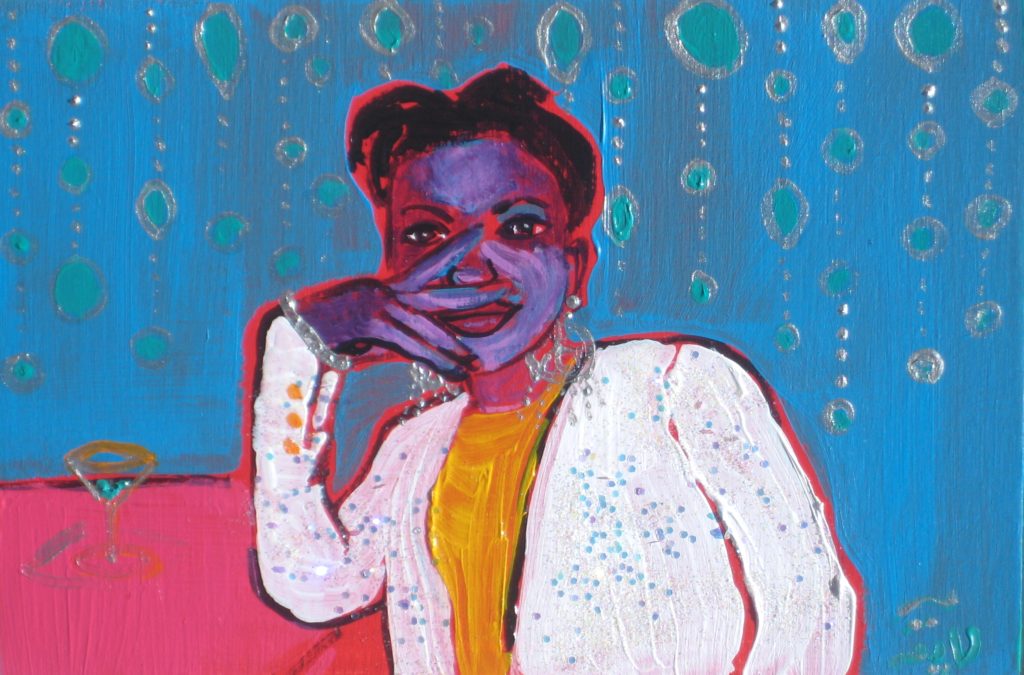
Ralkina Jones | Fifteen hours before Ralkina Jones was found dead in the bed of her jail cell in Cleveland Heights, Ohio, she said, “I don’t want to die in your cell.” Video footage shows her speaking of her medical problems during her booking for her arrest for assaulting her abusive ex-husband. Police were reportedly attentive to her medical needs, although it is not clear they provided her with the medications she needed. On the morning of July 26, 2015, she was found unresponsive. Jones was 37 and a mother of one.
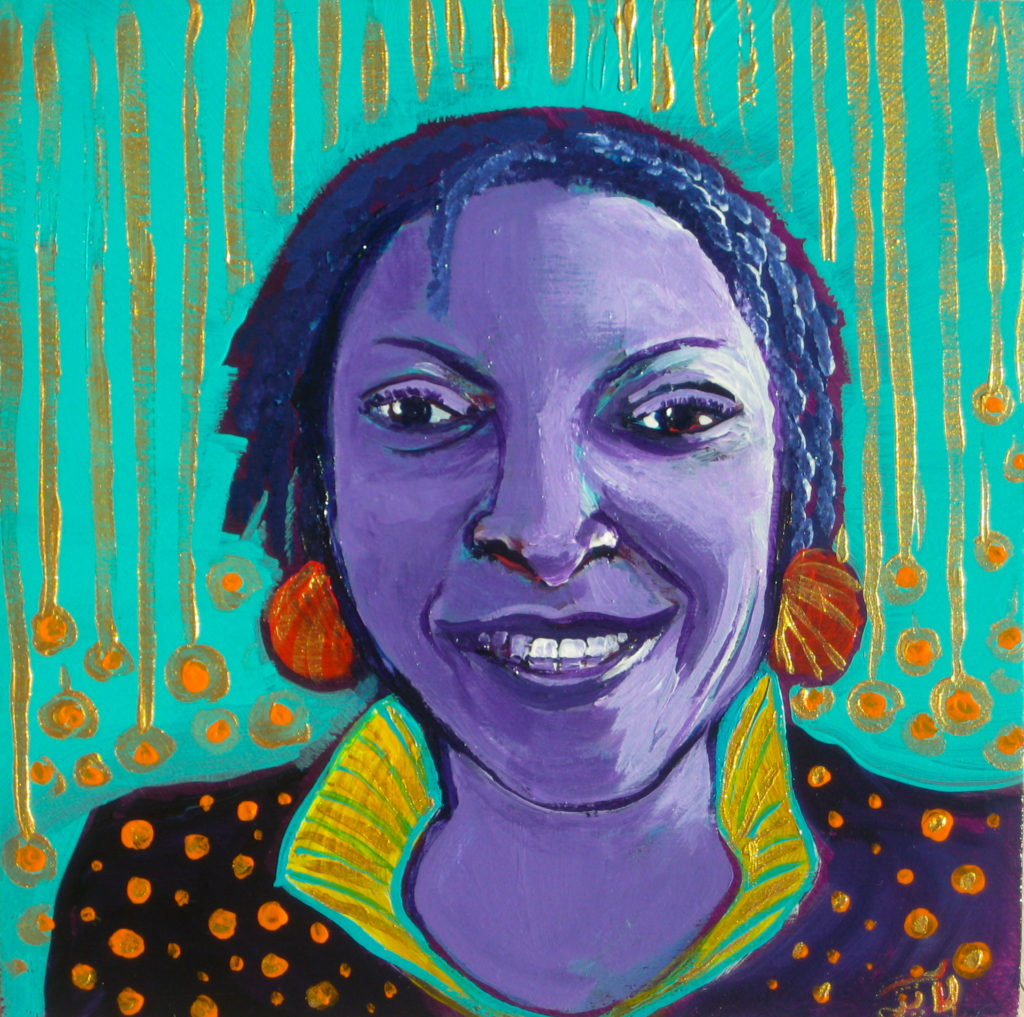
Sandra Bland | On July 13, 2015, Sandra Bland was found dead in her jail cell in Waller County, Texas. Her death was ruled a suicide, by hanging, but her family disputes any claims that she was suicidal. Bland was pulled over for failing to signal a lane change. A dashboard video recording of her interaction with the police officer shows their conversation became heated, with the officer demanding she get out of the car, and pointing his taser at her, saying, “I will light you up.” When Bland called a family member from the jail, she asked, “How did switching lanes with no signal turn into all of this?”

Rekia Boyd | 22-year-old Rekia Boyd was shot to death on March 21, 2012 in an alley in Chicago by an off-duty Chicago police detective with an unregistered firearm. The detective was charged with involuntary manslaughter and acquitted on the grounds that the killing was deliberate. He thought Boyd held a gun in her hand; it was a cell phone.
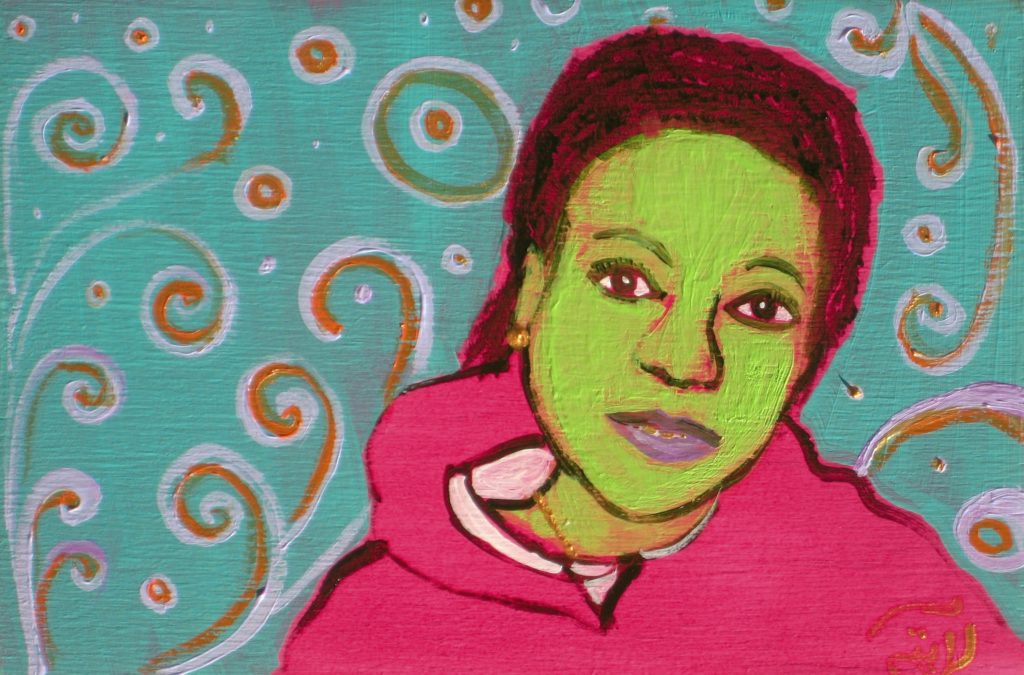
Kindra Chapman | Kindra Chapman, 18, was found dead in her jail cell in Homewood, Alabama, on July 14, 2015, an apparent suicide. Chapman had been arrested a few hours before for stealing a cell phone. Video surveillance shows that “she appeared to be agitated, and she attempted to damage the contents of the cell. She knocked over a water cooler, took a bed sheet, and stood on the cooler to tie the bed sheet to a wall support rail extending from the ceiling. She then used the sheet to commit suicide.”
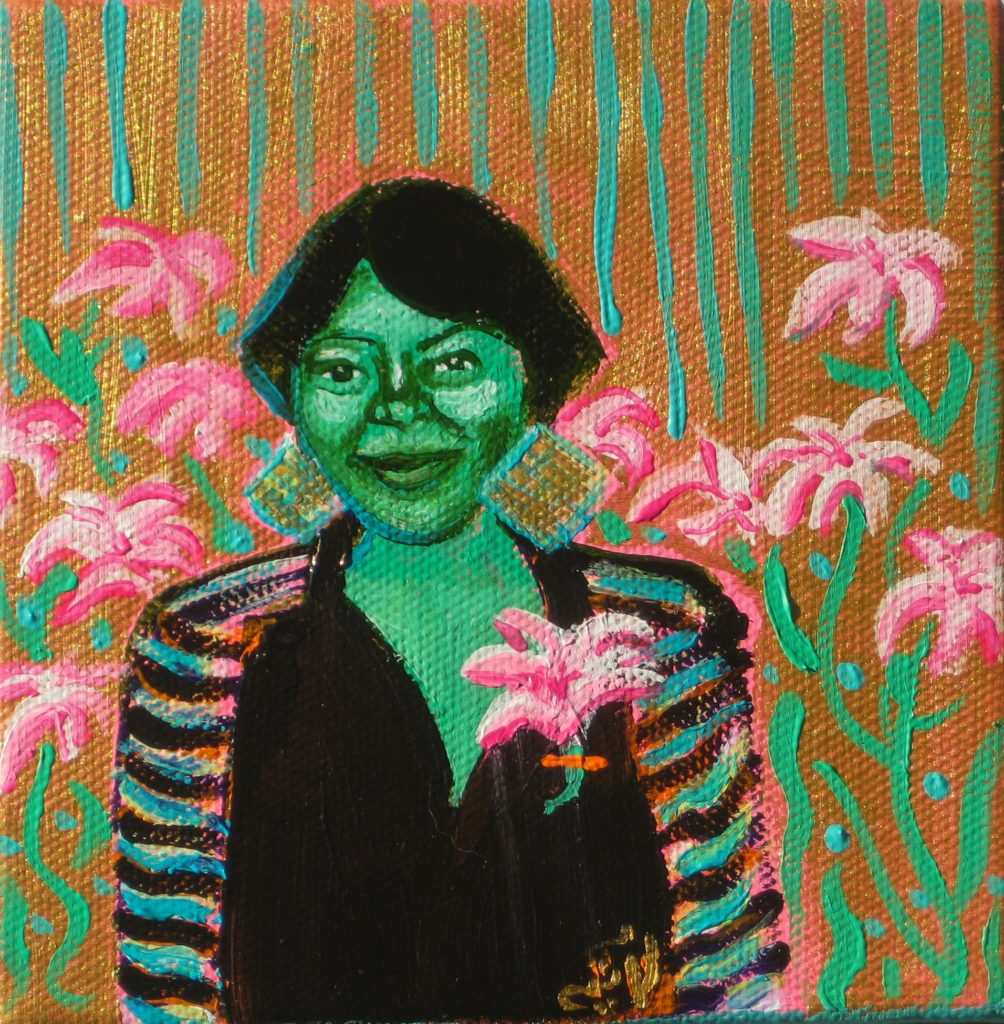
Joyce Curnell | On July 22, 2015, Joyce Curnell, 50, was found unresponsive in her cell at Sheriff Cannon Detention Center, in Charleston, SC. She had been booked at the detention center the day before for an outstanding bench warrant for shoplifting. Prior to being sent to jail, Curnell had briefly been taken to a hospital for a ‘medical issue.’

Sarah Lee Circle Bear | Portrait of Sarah Lee Circle Bear, a Native American woman who was found dead in her holding cell on July 6, 2015 at Brown County Jail in Aberdeen, SD. As Sarah Sunshine Manning writes, “Witnesses stated that before being transferred to a holding cell, Circle Bear pleaded to jailers that she was in excruciating pain. Jail staff allegedly responded by dismissing her cries for help, telling her to “knock it off,” and “quit faking.” Witnesses say that inmates cried out for the jail staff to help Circle Bear, to which they eventually responded by picking her up off of the floor, dragging her out of the cell, and transferring her to a holding cell. Circle Bear was later found unresponsive in the holding cell.

Sheneque Proctor | Portrait of Sheneque Proctor, a 18-year-old woman from Bessemer, Alabama, who was found dead in her jail cell on November 2, 2014. She was arrested for disorderly conduct and resisting arrest. Though toxicology reports show the possibility of drug overdose, she had a history of asthma and was ignored in her cell for many hours despite labored breathing.
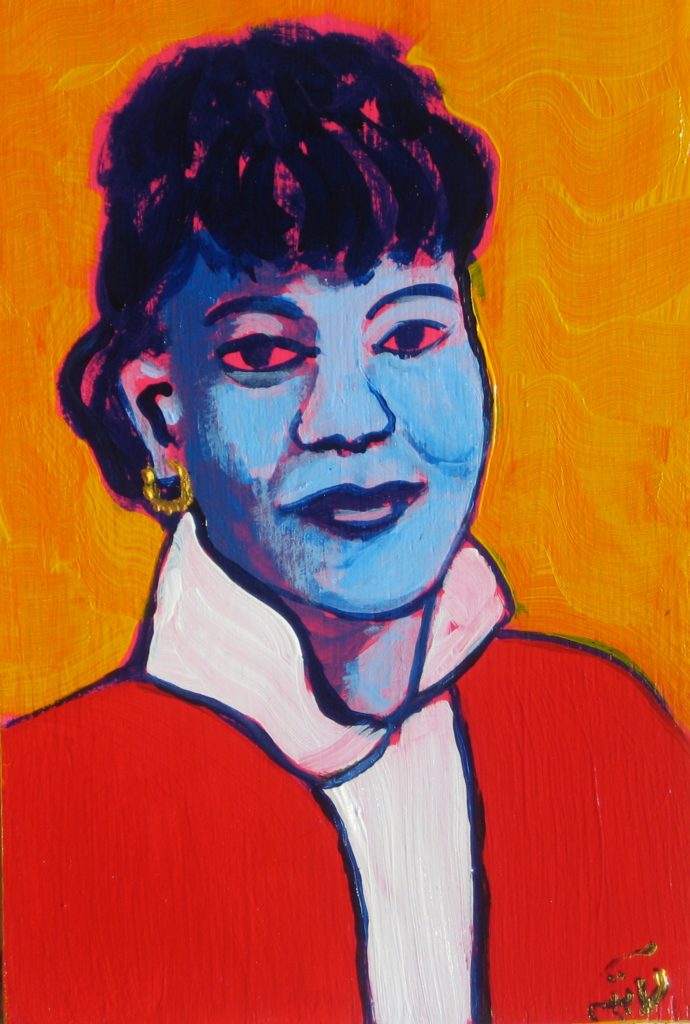
Raynetta Turner | Raynetta Turner, 43, was found dead in her jail cell two days after she was arrested for shoplifting from a wholesale food store in Mount Vernon, NY. After informing the police of hypertension and issues following bariatric surgery, she was taken to a hospital and then released back to the police the next day. The following day, on July 27, 2015, she was found to be unresponsive in her cell. Turner had eight children; her husband Herman Turner told reporters, “All I know is my wife is dead, and no one is saying anything. She was a mother, she was a wife. She was mine. No longer is she mine.”

Dominique Worrell | On August 25, 2015, Dominique Gail Worrell, 26, was found dead in her cell of an apparent suicide by hanging. Worrell had been convicted of assault with a deadly weapon, inflicting serious injury, in a stabbing incident, in Raleigh N.C. Worrell was a former model and mother of two young daughters. Her family had no indication that she felt suicidal. I happened upon her Sound Cloud page.










